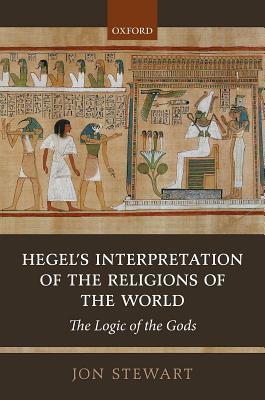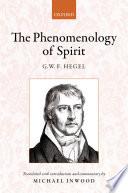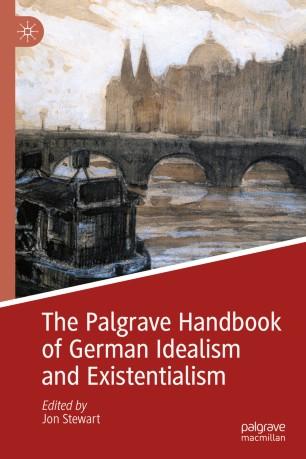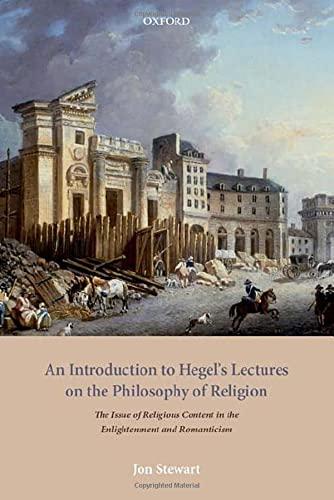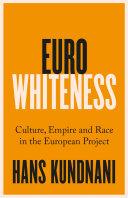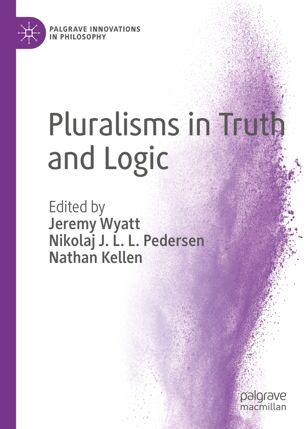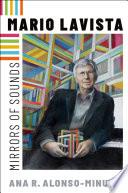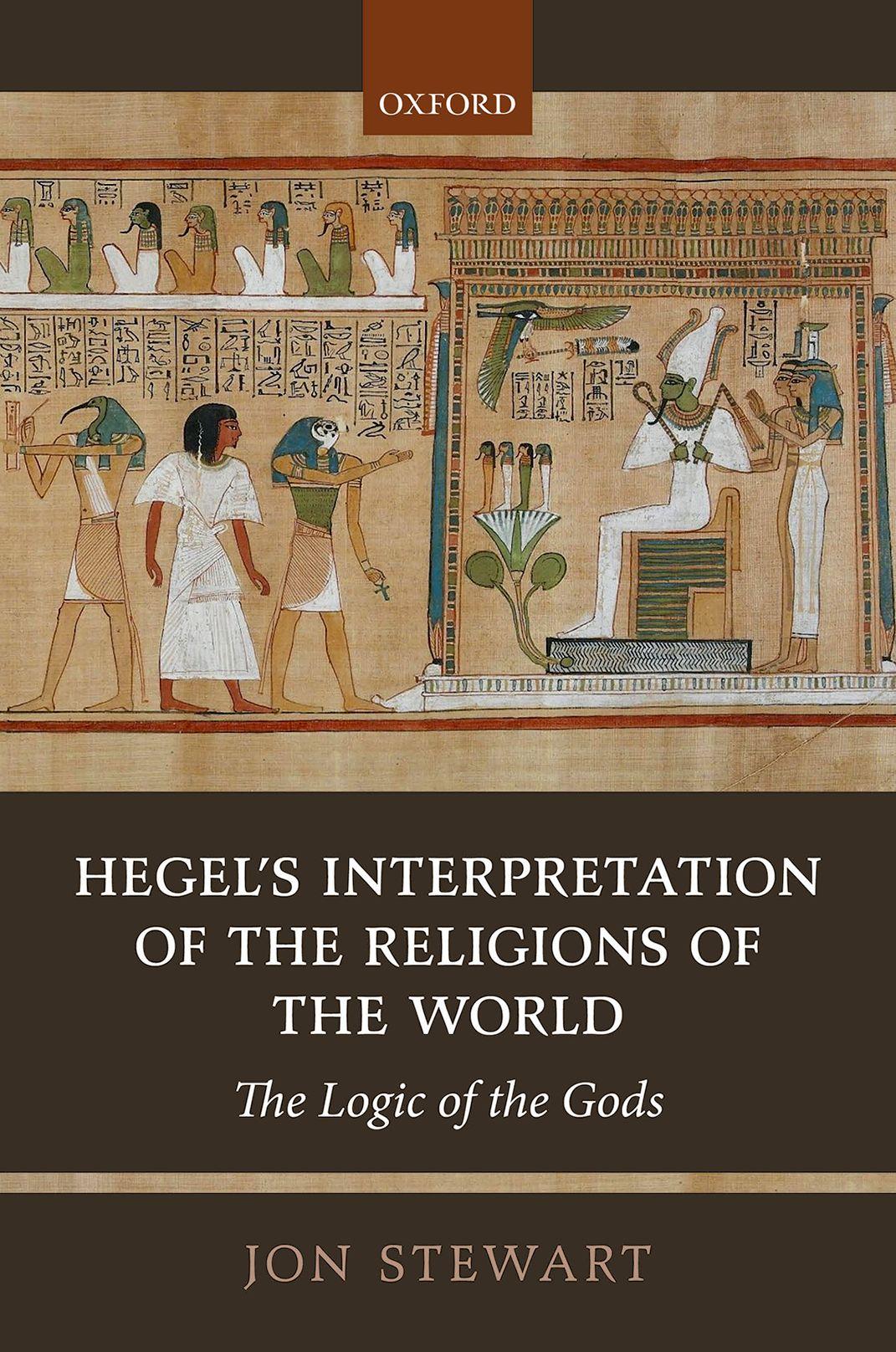Hegel’sInterpretationoftheReligionsofthe World:TheLogicoftheGodsJonStewart
https://ebookmass.com/product/hegels-interpretation-of-thereligions-of-the-world-the-logic-of-the-gods-jon-stewart/
Instant digital products (PDF, ePub, MOBI) ready for you
Download now and discover formats that fit your needs...
Hegel: the Phenomenology of Spirit G.W.F Hegel
https://ebookmass.com/product/hegel-the-phenomenology-of-spirit-g-w-fhegel/
ebookmass.com
The Palgrave Handbook of German Idealism and Existentialism 1st ed. Edition Jon Stewart
https://ebookmass.com/product/the-palgrave-handbook-of-germanidealism-and-existentialism-1st-ed-edition-jon-stewart/
ebookmass.com
An Introduction to Hegel's Lectures on the Philosophy of Religion 1st Edition Jon Stewart
https://ebookmass.com/product/an-introduction-to-hegels-lectures-onthe-philosophy-of-religion-1st-edition-jon-stewart/
ebookmass.com
Deadly Games (Whithall University Book 1) Lisa Helen Gray
https://ebookmass.com/product/deadly-games-whithall-universitybook-1-lisa-helen-gray/
ebookmass.com
Eurowhiteness: Culture, Empire and Race in the European Project Hans Kundnani
https://ebookmass.com/product/eurowhiteness-culture-empire-and-racein-the-european-project-hans-kundnani/
ebookmass.com
The Sacrifice Rin Chupeco
https://ebookmass.com/product/the-sacrifice-rin-chupeco-2/
ebookmass.com
Pluralisms in Truth and Logic 1st ed. Edition Jeremy Wyatt
https://ebookmass.com/product/pluralisms-in-truth-and-logic-1st-ededition-jeremy-wyatt/
ebookmass.com
Mario Lavista: Mirrors of Sounds Ana R. Alonso-Minutti
https://ebookmass.com/product/mario-lavista-mirrors-of-sounds-ana-ralonso-minutti/
ebookmass.com
Eat Without Fear: Harnessing Science to Confront and Overcome Your Eating Disorder Nicholas R. Farrell
https://ebookmass.com/product/eat-without-fear-harnessing-science-toconfront-and-overcome-your-eating-disorder-nicholas-r-farrell/
ebookmass.com
Pathology for the Physical Therapist Assistant 1st Edition, (Ebook PDF)
https://ebookmass.com/product/pathology-for-the-physical-therapistassistant-1st-edition-ebook-pdf/
ebookmass.com
HEGEL ’ SINTERPRETATIONOFTHE RELIGIONSOFTHEWORLD Hegel ’sInterpretationofthe ReligionsoftheWorld TheLogicoftheGods JONSTEWART GreatClarendonStreet,Oxford,OX26DP, UnitedKingdom
OxfordUniversityPressisadepartmentoftheUniversityofOxford. ItfurtherstheUniversity’sobjectiveofexcellenceinresearch,scholarship, andeducationbypublishingworldwide.Oxfordisaregisteredtrademarkof OxfordUniversityPressintheUKandincertainothercountries
©JonStewart2018
Themoralrightsoftheauthorhavebeenasserted
FirstEditionpublishedin2018
Impression:1
Allrightsreserved.Nopartofthispublicationmaybereproduced,storedin aretrievalsystem,ortransmitted,inanyformorbyanymeans,withoutthe priorpermissioninwritingofOxfordUniversityPress,orasexpresslypermitted bylaw,bylicenceorundertermsagreedwiththeappropriatereprographics rightsorganization.Enquiriesconcerningreproductionoutsidethescopeofthe aboveshouldbesenttotheRightsDepartment,OxfordUniversityPress,atthe addressabove
Youmustnotcirculatethisworkinanyotherform andyoumustimposethissameconditiononanyacquirer
PublishedintheUnitedStatesofAmericabyOxfordUniversityPress 198MadisonAvenue,NewYork,NY10016,UnitedStatesofAmerica
BritishLibraryCataloguinginPublicationData Dataavailable
LibraryofCongressControlNumber:2018936567
ISBN978–0–19–882949–2
Printedandboundby CPIGroup(UK)Ltd,Croydon,CR04YY
Preface Hegelphilologyisahighlycomplexmatter.Thereareanumberofdifferent editionsandtranslationsthatcontainrelevantinformationforHegel’sviews onreligion.Forthesakeofcompleteness,Ihavebeenobligedtomakeuseofa largenumberofthese.Forthequotations,thiscreatedaproblemofinconsistencyinlanguageandstyle.Toremedythis,Ihavemadeanumberof stillschweigend modificationstothetranslations.Mostoftheserevisionshave beenveryminorsuchasmodifyingorthographyandpunctuation.Manyof theoldertranslationshavetheunfortunatehabitofpartiallyfollowingthe Germanpracticeofputtingthenounsintheuppercase,especiallyforkey termssuchas “Spirit” or “AbsoluteKnowing,” etc.Ihaveinmostcasesrevised thisbyputtingthesetermsinthelowercaseinordertomakethembetter conformtostandardmodernEnglish.
WithregardtotheeditionsofHegel’ s LecturesonthePhilosophyofReligion, Ihave,ofcourse,primarilymadeuseoftheneweditioneditedbyWalter Jaeschke.¹ReferenceshavebeengiventothiseditionanditsEnglishtranslation, editedbyPeterC.Hodgson.²Forpassagesthatonlyappearintheolderedition, referenceshavebeenmadetothewell-knowntranslationbyE.B.Speirsand J.BurdonSanderson.³
ApartofthesourcematerialhasneverbeentranslatedintoEnglish.This includesboththesourcesthatHegelhimselfusedandthesourcesaboutthe receptionofhisphilosophyofreligionduringhislifetimeandinthedecades followinghisdeath.ForthesematerialsIhavegenerallyprovidedmyown translations,again stillschweigend,forthesakeofreadability.Alltranslationsfrom theBiblecomefromtheNewRevisedStandardVersion,unlessotherwisenoted.
¹Hegel, VorlesungenüberdiePhilosophiederReligion,Parts1–3,ed.byWalterJaeschke, Hamburg:FelixMeiner1983–85,1993–95(hereafter VPR).
²Hegel, LecturesonthePhilosophyofReligion,vols1–3,ed.byPeterC.Hodgson,trans.by RobertF.Brown,PeterC.HodgsonandJ.M.StewartwiththeassistanceofH.S.Harris,Berkeley etal.:UniversityofCaliforniaPress1984–87(hereafter LPR).
³Hegel, LecturesonthePhilosophyofReligion,vols1–3,trans.byE.B.SpeirsandJ.Burdon Sanderson,London:RoutledgeandKeganPaul,NewYork:TheHumanitiesPress1962,1968, 1972(hereafter Phil.ofReligion).
Acknowledgments Thepresentworkhasbeenmadepossiblebytheselflesshelpofanumberof friendsandcolleagues,whoseeffortsIgratefullyacknowledge.Iprofitedfrom manyfruitfuldiscussionswithJaimeAroosi,IstvánCzakó,RoeFremstedal, FinnGredalJensen,AlexGourevitch,NicholasJolley,AishaKhan,Avron Kulak,TalLewis,BobOrsi,WangQi,Peter Šajda,GerhardSchreiber,Heiko Schulz,BrianSöderquist,AllenSpeight,andKatalinNunStewart.Iowea specialthankstoLizCohenandJudyVichniacforhonoringmewiththe opportunitytoworkonthisprojectattheRadcliffeInstituteforAdvanced StudyatHarvardUniversity.
Ipresentedpartsofthisworkaslecturesatdifferentuniversities,andthe manuscripthasimprovedasaresultofthefeedbackthatIreceivedonthose occasions.TheIntroductionalongwithotherpartsofthetextwerepresented underthetitle “Hegel’sConceptionofChristianityinHisPhilosophyofReligion,” attheSørenKierkegaardResearchCentreattheUniversityofCopenhagen,on September12,2014.AvariantofthislecturewasgivenatLeidenUniversity College,FaculteitCampusDenHaagonNovember19,2015,atthePázmány PéterCatholicUniversity,Budapest,Hungary,onMay12,2016,theRadcliffe InstituteforAdvancedStudyatHarvardUniversityonOctober19,2016,andthe PhilosophyDepartmentatBostonUniversityonNovember4,2016.
AdraftofapartofChapter1waspresentedunderthetitle “Hegel,Creuzer andtheRiseofOrientalism:AStudyinHegel’sPhilosophyofReligion,” atthe PhilosophyDepartmentattheUniversityofTromsøinNorway,onMarch5, 2014.PartofChapter7waspresentedas “Hegel’sAccountoftheAncient EgyptianReligionasaTransitionfromNaturetoSpirit,” attheConference: “Europe,ChristianityandtheEncounterwithOtherReligionsinKierkegaard and19thCenturyReligiousThinking,” sponsoredbyTheSørenKierkegaard ResearchCentreandTheCentreforEuropeanIslamicThought,onMay9, 2012,andattheInstitutUniversitarideCulturaattheUniversitatPompeu FabrainBarcelona,onMay24,2012.ApartofChapter8wasgivenasa lectureunderthetitle, “TheReligionoftheSublime:Hegel’sControversial AccountofJudaism,” atYeshivaUniversityinNewYorkCityonNovember 16,2016.SectionsofChapter9werepresentedunderthetitle “Hegel’sInterpretationoftheGreekReligionasaReligionofSpirit,” attheMahindra HumanitiesCenteratHarvardUniversityonDecember13,2016.
Acknowledgments Earlierversionsofsomeofthematerialfromthisworkhaveappeared previouslyinprintedform.Iamthankfultothefollowingjournalsforallowing metoreprintthismaterialinthepresentwork: Filozofia, TheOwlofMinerva, the HegelBulletin,the JahrbuchfürHegelforschung,and Hegel-Studien.This workwasproducedattheInstituteofPhilosophy,SlovakAcademyofSciences. ItwassupportedbytheSlovakResearchandDevelopmentAgencyunderthe contractNo.APVV-15-0682.
5.4.TheTrimurti:Brahmā,Vishnu,andShiva
5.5.TheFormsofWorship:TheRelationtoBrāhma
5.6.TheFormsofWorship:TheRelationtotheOtherDeities
5.7.TheLackofSubjectiveFreedom
6.Zoroastrianism:TheReligionoftheGoodorLight
6.1.TheStateofPersianStudiesinHegel’sTime
6.2.LightandtheGood:Ormuzd
6.3.DarknessandEvil:Ahriman
6.4.TheLesserDeities:TheAmeshaSpentas,Fravashis,andYazatas
6.5.Worship
6.6.TheTransitiontotheEgyptianReligion
7.TheEgyptianReligion:TheReligionofMystery
7.1.TheBirthofEgyptology
7.2.OsirisandSeth
7.3.TheEgyptianCultofImmortality
7.4.TheEgyptianHieroglyphicsandSymbols
7.5.TheCombiningoftheHumanandtheAnimal
7.6.TheEgyptianGoddessNeithandtheGreekGodApollo
7.7.TheMythofOedipusandtheSphinx
8.Judaism:TheReligionofSublimity
8.2.GodasOne
8.3.GodasInterveninginNature:Sublimity
8.4.God’sPurposeintheWorld
8.5.TheTransitiontotheNextStage
9.GreekPolytheism:TheReligionofBeauty
9.1.ClassicalStudiesinHegel’sTime
’sSources
9.3.TheInterpretationandTransformationofNature
9.4.TheWaroftheGods
9.5.TheShiftfromtheGodsofNaturetotheGodsofSpirit
9.7.Fate,Destiny,andNecessity
9.8.TheDivineasManifestinInnerFeelingandEmotion
9.9.TheTransitiontotheRomanReligion
10.RomanPolytheism:TheReligionofExpediency
10.1.Hegel’sSources
10.2. “Gravitas” andtheContrastoftheGreekReligionwiththeRoman
10.3.JupiterandtheSupremeEndoftheRomanReligion
11.Christianity:TheAbsoluteorRevealedReligion
11.1.Introduction:Hegel’sDifferentDesignationsofChristianity
ListofIllustrations 3.1.[JeanJosephMarieAmiot], “L’AntiquitédesChinois,prouvée parlesmonumens,” in Mémoiresconcernantl’histoire,lessciences, lesmoeurs,lesusages,etc.desChinois,vols1–16,Paris: Nyonl’âineet fils1776–1814,vol.2,p.151.
3.2.ProsperoIntorcetta,ChristianHerdtrich,FrançoisRougemont, PhilippeCouplet, ConfuciusSinarumPhilosophus,sivescientia sinensislatineexposita,Paris:DanielHorthemels1687,p.xliv.
3.3.[JeanJosephMarieAmiot], “L’AntiquitédesChinois,prouvée parlesmonumens,” in Mémoiresconcernantl’histoire, lessciences,lesmoeurs,lesusages,etc.desChinois,vols1–16, Paris:Nyonl’âineet fils1776–1814,vol.2,p.189.
77
81
83
5.1.DepictionofBrahmā inWilliamJones’“OntheGodsofGreece, Italy,andIndia,” AsiatickResearches,vol.1,1788(unnumbered pageafterp.242). 131
5.2.DepictionoftheTrimurtiin AbbildungenzuFriedrichCreuzers SymbolikundMythologiederaltenVölker.AufsechzigTafeln, LeipzigandDarmstadt:HeyerundLeske1819,PlateXXI.
7.1.Pagefrom TheBookoftheDeadofHunefer inTheBritish Museum.ARTCollection/AlamyStockPhoto.
9.1.DetailfromadepictionofOceanusinthe WeddingofPeleusand Thetis inTheBritishMuseum.ARTCollection/AlamyStockPhoto.
9.2.Artemis(=Diana)ofEphesusfrom AbbildungenzuFriedrich CreuzersSymbolikundMythologiederaltenVölker.Aufsechzig Tafeln,LeipzigandDarmstadt:HeyerundLeske1819, TabulaIII, figure4.
AbbreviationsofPrimaryTexts AestheticsHegel’sAesthetics.LecturesonFineArt,vols1–2,trans.by T.M.Knox,Oxford:ClarendonPress1975,1998.
AR VorlesungenüberdiePhilosophiederReligion,DritterTeil, Die absoluteReligion,ed.byGeorgLasson,HamburgFelixMeiner 1974[1929](secondhalfofvol.2of Vorlesungenüberdie PhilosophiederReligion,vols1–2,ed.byGeorgLasson,Hamburg: FelixMeiner1974),vol.14inHegel, SämtlicheWerke,ed.byGeorg Lasson,Leipzig:FelixMeiner1920–.
Briefe
BriefevonundanHegel,vols1–4,ed.byJohannesHoffmeister (vols4.1and4.2,ed.byFriedhelmNicolin),3rded.,Hamburg: Meiner1961–81.
DifferenceTheDifferenceBetweenFichte’sandSchelling’sSystemof Philosophy,ed.andtrans.byH.S.HarrisandWalterCerf, NewYork:StateUniversityofNewYorkPress1977.
DokumenteDokumentezuHegelsEntwicklung,ed.byJohannesHoffmeister, Stuttgart:Frommann1936.
EL TheEncyclopaediaLogic.PartOneoftheEncyclopaediaofthe PhilosophicalSciences,trans.byT.F.Gerats,W.A.Suchting, H.S.Harris,Indianapolis:Hackett1991.
EpisodeOntheEpisodeoftheMahabharataKnownbytheNameBhagavadGitabyWilhelmvonHumboldt,trans.byHerbertHerring,New Delhi:IndianCouncilofPhilosophicalResearch1995.
ETW
GRW
EarlyTheologicalWritings,trans.byT.M.Knox,Fragmentstrans. byRichardKroner,Chicago:UniversityofChicagoPress1948, Philadelphia:UniversityofPennsylvaniaPress1975.
DiegriechischeunddierömischeWelt,ed.byGeorgLasson,Leipzig: FelixMeiner1923(vol.3of VorlesungenüberdiePhilosophieder Weltgeschichte,vols1–5,ed.byGeorgLasson,Leipzig:FelixMeiner 1920–3).
Hegel’sLibraryVerzeichnißdervondemProfessorHerrnDr.Hegelunddem Dr.HerrnSeebeck,hinterlassenenBücher-Sammlungen,Berlin: C.F.Müller1832.(Referencedbyentrynumberandnotpage number.)(Thisworkisreprintedin “HegelsBibliothek.Der Versteigerungskatalogvon1832,” ed.byHelmutSchneiderin JahrbuchfürHegelforschung,vols12–14,2010,pp.70–145.)
Hist.ofPhil LecturesontheHistoryofPhilosophy,vols1–3,trans.by E.S.Haldane,LondonK.Paul,Trench,Trübner1892–6,Lincoln andLondon:UniversityofNebraskaPress1995.
Jub
AbbreviationsofPrimaryTexts
SämtlicheWerke.Jubiläumsausgabe,vols1–20,ed.byHermann Glockner,Stuttgart:FriedrichFrommannVerlag1928–41.
LettersHegel:TheLetters,trans.byClarkButlerandChristianeSeiler, Bloomington:IndianaUniversityPress1984.
LHP
LecturesontheHistoryofPhilosophy:TheLecturesof1825–1826, vols1–3,ed.byRobertF.Brown,trans.byRobertF.BrownandJ.M Stewart,withtheassistanceofH.S.Harris,Berkeleyetal.: UniversityofCaliforniaPressandOxford:OxfordUniversityPress 1990–2009.
LPR LecturesonthePhilosophyofReligion,vols1–3,ed.byPeter C.Hodgson,trans.byRobertF.Brown,P.C.Hodgson,and J.M.StewartwiththeassistanceofH.S.Harris,Berkeleyetal.: UniversityofCaliforniaPress1984–7.
LPWHLecturesonthePhilosophyofWorldHistory,vols1–3,ed.andtrans. byRobertF.BrownandPeterC.Hodgson,withtheassistanceof WilliamG.Geuss,Oxford:ClarendonPress2011–
LPWHILecturesonthePhilosophyofWorldHistory,Introduction,trans.by H.B.Nisbet,withanintroductionbyDuncanForbes,Cambridge etal:CambridgeUniversityPress1975.
MW MiscellaneousWritingsofG.W.F.Hegel,ed.byJonStewart, Evanston:NorthwesternUniversityPress2002.
NR VorlesungenüberdiePhilosophiederReligion,ZweiterTeil, Die BestimmteReligion,ErstesKapitel, DieNaturreligion,ed.byGeorg Lasson,Hamburg:FelixMeiner1974[1927](secondhalfofvol.1 of VorlesungenüberdiePhilosophiederReligion,vols1–2,ed.by GeorgLasson,Hamburg:FelixMeiner1974),vol.13.1in Sämtliche Werke,ed.byGeorgLasson,Leipzig:FelixMeiner1920–.
OW DieorientalischeWelt,ed.byGeorgLasson,Leipzig:FelixMeiner 1923(vol.2of VorlesungenüberdiePhilosophiederWeltgeschichte, vols1–4,ed.byGeorgLasson,Leipzig:FelixMeiner1920–3).
Phil.ofHistThePhilosophyofHistory,trans.byJ.Sibree,NewYork:Willey BookCo.1944.
Phil.ofMindHegel’sPhilosophyofMind,trans.byWilliamWallaceand A.V.Miller,Oxford:ClarendonPress1971.
Phil.ofReligionLecturesonthePhilosophyofReligion,vols1–3,trans.byE.B.Speirs andJ.BurdonSanderson,London:RoutledgeandKeganPaul,New York:TheHumanitiesPress1962,1968,1972.
PhS Hegel’sPhenomenologyofSpirit,trans.byA.V.Miller,Oxford: ClarendonPress1977.
PR ElementsofthePhilosophyofRight,trans.byH.B.Nisbet,ed.by AllenWood,CambridgeandNewYork:CambridgeUniversity Press1991.
RGI
VorlesungenüberdiePhilosophiederReligion,ZweiterTeil, Die BestimmteReligion,ZweitesKapitel, DieReligionendergeistigen Individualität,ed.byGeorgLasson,HamburgFelixMeiner1974 [1929](firsthalfofvol.2of VorlesungenüberdiePhilosophieder Religion,vols1–2,ed.byGeorgLasson,Hamburg:FelixMeiner 1974),vol.13.2inHegel, SämtlicheWerke,ed.byGeorgLasson, Leipzig:FelixMeiner1920–.
SL Hegel’sScienceofLogic,trans.byA.V.Miller,London:George AllenandUnwin1989.
TE ThreeEssays,1793–1795,ed.andtrans.byPeterFussandJohn Dobbins,NotreDame,IN:UniversityofNotreDamePress1984.
TJ HegelstheologischeJugendschriften,ed.byHermanNohl, Tübingen:VerlagvonJ.C.B.Mohr1907.
VG DieVernunftinderGeschichte,ed.byGeorgLasson,3rd augmentededition,Leipzig:FelixMeiner1930(vol.1of VorlesungenüberdiePhilosophiederWeltgeschichte,vols1–4,ed. byGeorgLasson,Leipzig:FelixMeiner1920–3).
VGH DieVernunftinderGeschichte,ed.byJohannesHoffmeister,5th augmentededition,Leipzig:FelixMeiner1955(vol.1of VorlesungenüberdiePhilosophiederWeltgeschichte,vols1–4,ed. byGeorgLassonandJohannesHoffmeister,Hamburg:Felix Meiner1955).
VGP VorlesungenüberdieGeschichtederPhilosophie,vols1–4,ed.by PierreGarnironandWalterJaeschke,Hamburg:FelixMeiner 1986–96.(Thiscorrespondstovols6–9intheedition,Hegel, Vorlesungen.AusgewählteNachschriftenundManuskripte,vols 1–17,Hamburg:Meiner1983–2008.)
VPR VorlesungenüberdiePhilosophiederReligion,Parts1–3,ed.by WalterJaeschke,Hamburg:FelixMeiner1983–5,1993–5.(This correspondstovols3–5intheedition,Hegel, Vorlesungen. AusgewählteNachschriftenundManuskripte,vols1–17,Hamburg: Meiner1983–2008.Part1, Einleitung.DerBegriffderReligion = vol.3.Part2, DieBestimmteReligion.a:Text =vol.4a.Part2, DieBestimmteReligion.b:Anhang =vol.4b.Part3, Die vollendeteReligion =vol.5.)
VPWGVorlesungenüberdiePhilosophiederWeltgeschichte:Berlin 1822–1823,ed.byKarlHeinzIlting,KarlBrehmer,andHooNam Seelmann,Hamburg:FelixMeiner1996.(Thiscorrespondstovol.12 intheedition,Hegel, Vorlesungen.AusgewählteNachschriftenund Manuskripte,vols1–17,Hamburg:Meiner1983–2008.) AbbreviationsofPrimaryTexts
“ ... manpictureshimselfinhisgods.” FriedrichvonSchiller, “TheNatureandValueofUniversalHistory” Introduction TheNeglectoftheHistoricalDimensionof Hegel’sPhilosophyofReligion Ithaslongbeenaclichéinoverviewsofmodernphilosophytopointoutthat oneofHegel’sgreatcontributionswastomakephilosophersawareofthe importanceofhistoryforanunderstandingoftruthandobjectivity.Forthis reasonhisIntroductiontothe LecturesonthePhilosophyofHistory remains oneofhisbest-knowntexts.Itisclaimedthatunlikemostofhispredecessors, whoproceededinanahistoricalfashion,Hegelinnovativelyusedhisprofound appreciationandunderstandingofhistorytoshapehisreflectionsonthekey issuesofmetaphysics,epistemology,aesthetics,andsocial-politicalphilosophy. Hegelarguesthatconceptsmustbeunderstoodnotjustasabstractionsbut alsointheirconcreteinstantiationsintherealworld,andhisaccountof historyisapartofthis.
Despitethisawarenessandappreciationoftheimportantroleofhistoryin Hegel’sthought,scholarsworkingonhisphilosophyofreligionhavealmost entirelyignoredthisdimension.MoststudiesofHegel’ s Lecturesonthe PhilosophyofReligion simplydisregardthelongandhighlydetailedhistorical analysesoftheworldreligionsthathecarriesoutundertherubric “the determinatereligion” (diebestimmteReligion).Instead,theychoosetofocus primarilyontwoothersetsofissueswhichcanberegardedasrepresentative ofthetwomaintendenciesinthesecondaryliterature.
Oneoftheseistoconcentrateonthe firstpartofHegel’sanalysisthatfalls undertheheading, “TheConceptofReligion,” wherehediscussesbroadlythe natureofreligionanditsrelationtophilosophyandotherformsofknowing. HereHegelpresentstheorganizationandmethodologyofthelectures,outlininghisconceptionofaspeculativephilosophyofreligion.Hefurther attemptstodeterminethecorrectconceptofthedivine.Thetendencyinthe secondaryliteraturetofocusjustonthisinitialpartofHegel’saccountof religionisanalogoustothegeneralpracticetakenwithregardtoHegel’ s LecturesonthePhilosophyofHistory,wheremostpeoplereadonlyhisfamous
Introduction,inwhichhedistinguishesthedifferentkindsofhistoriography andproposeshisownmethodologyforaphilosophicalorspeculativeunderstandingofhistory.Withthisthesoleobjectofattention,readers,however, whollyignorehisactualhistoricalanalyses,whichconstitutethelargebulkof thelecturesandaretheirmainobject.Similarly,withthe Lecturesonthe PhilosophyofReligion,thekeyhistoricaldiscussionsofthedifferentworld religionsarewhollyoverlookedduetoamyopicfocusonthepreliminary material.Inthiscasereadersfailtounderstandhow “TheConceptofReligion” appliestohistreatmentoftheactualreligionsoftheworld.Sotheycanbesaid toknowthetheorybutneveractuallyseeitappliedinpractice.
Thesecondtendencyfocusesnoton thebeginning ofthelecturesbuton the end,namely,onHegel’saccountofChristianityasthe “absolute” or “ consummatereligion.” TheintuitionguidingthisapproachisthatHegelisaChristian thinker,whoisinterestedindefendinghisspecialinterpretationofChristianity. Giventhis,everythingelseinhislecturesis,accordingtothisview,simply leadinguptothisgoal,andforthesakeofexpediencyonecansimplygostraight tohisanalysisofChristianityinsteadofpainstakinglyworkingone’ sway throughmanypagesoftediousmaterialthat,intheend,aremerelypreparatory anyway.Hegel’ sdefenseofChristianity,itisthought,canbeunderstoodon itsownterms,andtheaccountsthathegivesoftheotherreligionsareatbest ofsecondaryimportance.
Neitherofthesetendenciesisparticularlytroubledbyitsomissionof Hegel’sanalysisofthedifferentworldreligions.However,thebasicinsight thatHegel’sunderstandingofhistoryiskeytohisgeneralapproachshould alertonetotheimportanceofthismaterialfortheoverallargumentthatHegel wishestomake.Ifoneisanadvocateofthe firsttendency,thatis,offocusing onthe firstpartofHegel’slectures,wherehediscussestheconceptofreligion andhismethodology,thenitwouldseemlogicalthatonewouldwishtosee howthisunderstandingofreligionandhowthismethodinfactlooksin practice,namely,byhavingalookathisactualhistoricalanalyses.Similarly, ifoneisanadvocateofthesecondtendency,thatis,ofseeingHegelasa Christianthinkerandoffocusingonthelastpartofhislectures,thenitwould seemobviousthatonewouldwanttounderstandthefullforceofhisdefense ofChristianitybycomingtotermswithwhathetakestobetheshortcomings oftheotherreligionsthatprecededitinthehistoricaldevelopment.But despitewhatmightseemtobeclearandstraightforwardreasonstotake seriouslyHegel’saccountofthedifferentworldreligions,thispartofhis lectureshassadlylanguishedinneglect.
Therearepresumablymanydifferentreasonsforthelackofinterestinthe historicalmaterialthatliesbetweentheintroductorymethodologicaldiscussionsatthebeginningofHegel’sphilosophyofreligionandtheculminating accountofChristianityattheend.First,thismaterialisprofoundlydetailed andrequiresabroadrangeofexpertiseinthedifferentworldreligionsthatis
intimidatingforcautiousspecializedscholarstoday.WhilemostcommentatorsfeelgenerallycompetenttojudgewhatHegelhastosayaboutChristianity orperhapstheGreekreligion,theyfeelrathervulnerableanduncertainwhen itcomestohisanalysesofEasternreligions.Thus,insteadofwadingoutinto uncertainwaters,mostscholarssimplyopttoignoreandmarginalizewhat theydonotunderstand.Unfortunately,thismeansineffectleavingoutavast amountofmaterialcoveringmanypagesinHegel’sanalysis.
Second,thereisageneralviewthatHegel’sinformationaboutthedifferent worldreligionsishighlydatedbyourmodernstandardsespeciallywithregard tonon-Westernreligions.Inotherwords,thereisalingeringsensethathis accountsof,forexample,Buddhism,Hinduism,Zoroastrianism,andthe Egyptianreligionaremisinformedduetotheinaccurateinformationthathe wasworkingwith.HelivedinaperiodwhenEuropewasonlyjustbeginning tolearnaboutEasternculturesandlanguages;thiswasthetimewhenIndology,PersianStudies,andEgyptologybegantobeestablishedasscholarly disciplines.Althoughhedutifullyreadeverythingthathecouldlayhandson accountsofChinabyJesuitmissionaries,descriptionsofIndiabyBritish colonists,andamultitudeofexotictravelreportsbyEuropeansventuring outintotheunknown nonetheless,itisthought,hewasonlyabletoacquirea highlydistortedviewofnon-Westerncultures.
Again,thisisaconvenientwaytodismissalargeamountofmaterialthat onedoesnotwishtotreat.TheclaimaboutHegel’suseofmistakenor distortedinformationisalmostalwaysmadeintheabstractandnotwith concretereferencetothesourcesthathewasinfactusing.Indeed,onlyfairly recentlyhastherebeenaninterestinexamininghissourcescloselyandtosee whathetookfromthem.Theargumentisusuallymadebasedonthesimple assumptionthatwhatwaswrittenaboutforeignculturesduringtheeighteenth andearlynineteenthcenturieswaswhollymistakenwhencomparedtoour modernstandards.However,acarefulexaminationofHegel’ssourcesreveals thattheaccountshereaddidnotalwaysdeviatesoradicallyfromourmodern viewsasoneisoftenledtobelieve.¹Whilemistakesandinaccuraciesin Hegel’ssourcesdoexist,thisisnottosaythatHegelreceivedacompletely distortedviewofthedifferentreligionsandculturesthathestudied.Atany rate,thisisanissuethatcanonlybeadjudicatedonacase-to-casebasis,and themattercannotberesolvedgenerallywithasimplewaveofthehand.
¹ComparetheclaimmadebyRoger-PolDroitinhis TheCultofNothingness:ThePhilosophersandtheBuddha,trans.byDavidStreightandPamelaVohnson,ChapelHillandLondon: TheUniversityofNorthCarolinaPress2003,p.58: “Hegelwasextremelyattentivetothe progressofOrientalism.Asscholarlyworksappeared,heacquaintedhimselfwiththosethat dealtwithPersian,Sanskrit,andChinese.HiscoursesrelativetotheOrient,whethertheywere onart,religion,orworldhistory,werefoundedon first-handdocumentation.Thephilosopher undoubtedlyalteredtheinformationavailable,sometimesmarkedly,tobeabletomakeit fitinto hissystem.Buttheaccuracyofhisinformationwasgenerallyremarkable.”
AresponsiblejudgmentrequiresadetailedoverviewofandintimatefamiliaritywithHegel’ ssources.
Third,thereisanimportantviewthatgoeshand-in-handwiththeonejust mentioned.InrecentyearstherehasbeenaquicklygrowingbodyofsecondaryliteraturearguingthatHegel’sviewsaredecidedlyEurocentric,ethnocentric,andevenstraightforwardlyracist.²Itiscommonlyheldthat,likemost Europeansoftheday,hewassimplyprejudicedandnegativelydisposed towardsanyreligionexceptChristianity,and,asaresult,hisanalysesof non-Westernreligionscannotbetakenseriously.Accordingtothecharitable versionofthisview,hecannotbefaultedfortheseshortcomingsandprejudicessinceallofhissourcessufferedfromthesame flaws.Inanycase,itis thoughtthathecannotinprinciplehaveanythingmeaningfultosayaboutthe differentreligionsoftheworldsinceallofhisanalysesaremarredbya perniciousprejudiceddispositiontypicalofEuropeanscholarsoftheday.It isbutashortstepfromthistoclaimingthathishistoricalaccountscanbe safelyskippedoversincetheycanhavenobeneficialeffectonthereaderand donotfacilitateanunderstandingofreligiousphenomena.
WhileitistruethatHegel,likeallhumanbeings,hashisprejudicesand doesexpresshimselfinwaysthatwewouldregardasethnocentricorracist byourcontemporaryculturalstandards,itdoesnotfollowfromthisthathe hasabsolutelynothingmeaningfultosayabouttheworldreligions.Simply becausewecanidentify some ofhisstatementsasracist,itdoesnotfollowthat all ofthemare.Ofcourse,wehaveadutytoidentifyandcriticizewhatever ethnocentricorracistelementsthatwe find,butthiscanbedonewithouta wholesalerejectionofhisentirephilosophyofreligion.Moreover,Hegel’ s criticsonthisissueimplicitlyrelyonatheoryofequality,humanrights,and thevalueoftheindividualthat,infact,Hegelhimselfhelpedtobringabout. Someversionofhisaccountofsubjectivefreedomandtheirreducibleimportanceoftheindividualvis-à-visoppressivecustomsandinstitutionsisat workintheviewsofthosewhowishtodismisshimbybrandinghim
²ThisbodyofliteraturerepresentsanewandimportantcontributiontoHegelstudies,which traditionallyhadsimplyignoredordismissedthisdubiousaspectofhisthought.See,for example,TeshaleTibebu, HegelandtheThirdWorld:TheMakingofEurocentrisminWorld History,Syracuse:SyracuseUniversityPress2011.RobertBernasconi, “HegelattheCourtofthe Ashanti,” in HegelafterDerrida,ed.byStuartBarnett,NewYork:Routledge1998,pp.41–63. RobertBernasconi, “WithWhatMustthePhilosophyofWorldHistoryBegin?OntheRacial BasisofEurocentrism, ” Nineteenth-CenturyContexts,vol.22,2000,pp.171–201.Robert Bernasconi, “TheReturnofAfrica:HegelandtheQuestionoftheRacialIdentityofthe Egyptians,” in IdentityandDifference:StudiesinHegel’sLogic,PhilosophyofSpiritandPolitics, ed.byPhilipGrier,Albany,StateUniversityofNewYorkPress2007,pp.201–16.Babacar Camara, “TheFalsityofHegel’sThesesonAfrica,” JournalofBlackStudies,vol.36,no.1,2005, pp.82–96.MichaelH.Hoffheimer, “Hegel,Race,Genocide,” SouthernJournalofPhilosophy,vol. 39(supplement),2001,pp.35–62.MichaelH.Hoffheimer, “RaceandLawinHegel’sPhilosophy ofReligion,” in RaceandRacisminModernPhilosophy,ed.byAndrewValls,IthacaandLondon: CornellUniversityPress2005,pp.194–216. 4 Hegel’sInterpretationoftheReligionsoftheWorld
ethnocentricorracist.Soironically,itisimpossibletocriticizeHegelhere withoutinanothersenseagreeingwithhimandhavingrecoursetohistheory ofwhatitistobehuman.
Fourth,anotherproblemhastodowithHegel’steleology.Moststudiesof Hegel’sphilosophyofreligionignorehisstrikingclaimthatthehistoryofthe worldreligionsfollowsanecessary telos.Itisquiteunfashionabletodayto claimthatthedevelopmentofthereligionsoftheworldleadstoaculminating pointinChristianity,whichistheonlytruereligion.Suchclaimsoffendour modernsensibilitiesalmostasquicklyasracistorethnocentricstatements. Asaresult,otherwisesympatheticcommentatorshavediscreetlyignored theseclaimssincetheyregardthemaswhollyindefensible.Thisfactalso explainswhytherehasnotbeenmuchinterestinthehistoricaldimensionof Hegel ’ slectures.
TheproblemwiththisapproachisthattoignoreHegel’sclaimaboutthe teleologicaltrajectoryoftheworldreligionsmeanstomisstheentirepointof hisaccountofthehistoricaldevelopment.ItissimplyimpossibletounderstandhisanalysesofeitherChristianityortheotherreligionswithoutkeeping inmindthisidea.However,itdoesnotfollowfromthisthateverythingthat precedestheendpointoftheaccountisfalseandmeaningless.³Indeed,Hegel devotesagreatdealoftimeandefforttounderstandingtheseotherreligions. Farfromdismissingthem,Hegelwarnshisauditorsagainstprejudicetowards thismaterial:
Asurveyofthesereligionsrevealswhatsupremelymarvelousandbizarre flights offancythenationshavehituponintheirrepresentationsofthedivineessence andoftheir[own]dutiesandmodesofconduct.Tocastasidethesereligious representationsandusagesassuperstition,error,andfraudistotakeasuperficial viewofthematter
³OnthispointIconcurwithJoséOrtegayGasset’sunderstanding.SeeLuanneBuchanan andMichaelH.Hoffheimer, “HegelandAmerica byJoséOrtegayGasset,” Clio,vol.25,no.1, 1995,p.71: “Hegel’shistoricalphilosophyhastheambitionofjustifyingeachepoch,eachhuman stage,andavoidingtheerrorofvulgarprogressivismthatconsidersallthatispastasessential barbarity .Hegelwantstodemonstrate thatwhatishistoricalisanemanationofreason; thatthepasthasgoodsense;or ... thatuniversalhistoryisnotastringoffoolishacts.Rather Hegelwantstodemonstratethatinthegiganticsequenceofhistorysomethingserioushas happened,somethingthathasreality,structureandreason.Andtothisendhetriestoshowthat allperiodshavehadreason,preciselybecausetheyweredifferentandevencontradictory.” ⁴ Hegel, LPR,vol.1,p.198; VPR,Part1,p.107.SeealsoHegel, Aesthetics,vol.1,pp.310f.; Jub.,vol.12,p.417.Asearlyas “TheTübingenEssay” Hegelupbraidspeoplewhowishto denigratethepaganreligions(TE,p.38; TJ,p.10): “whoever findsthatotherpeople’smodesof representation heathens,astheyarecalled containsomuchabsurditythattheycausehimto delightinhisownhigherinsights,hisunderstanding,whichconvinceshimthatheseesfurther thanthegreatestofmensaw,doesnotcomprehendtheessenceofreligion.Someonewhocalls JehovahJupiterorBrahmaandistrulypiousoffershisgratitudeorhissacrificeinjustas childlikeamannerasdoesthetrueChristian.”

